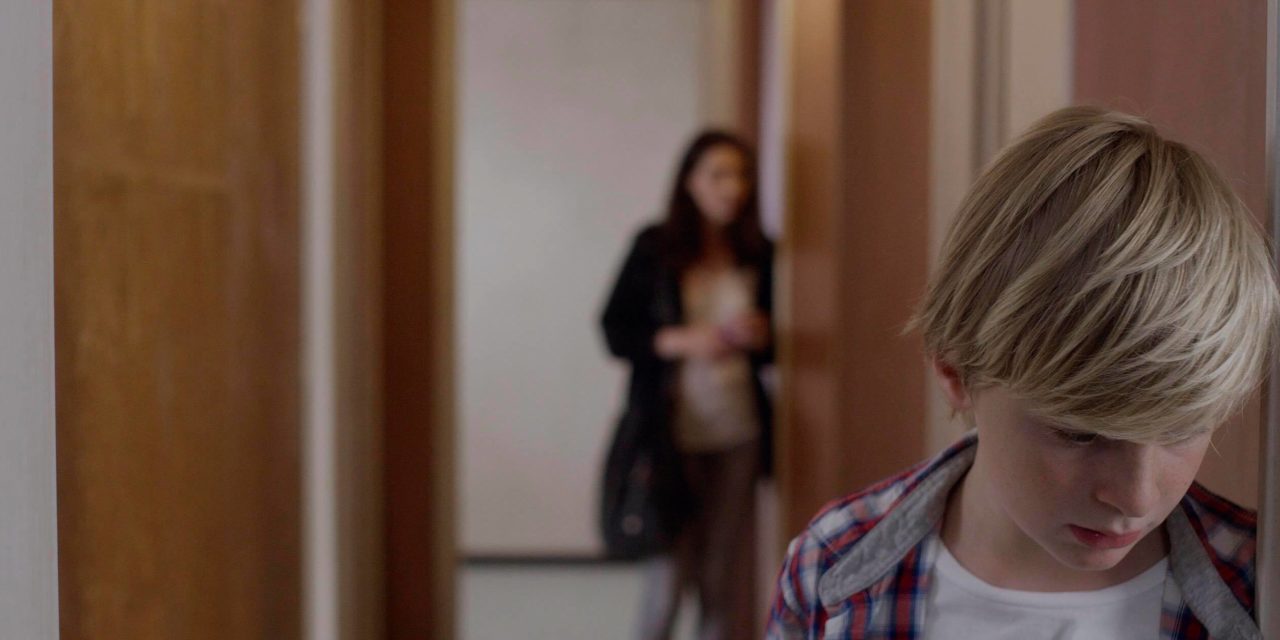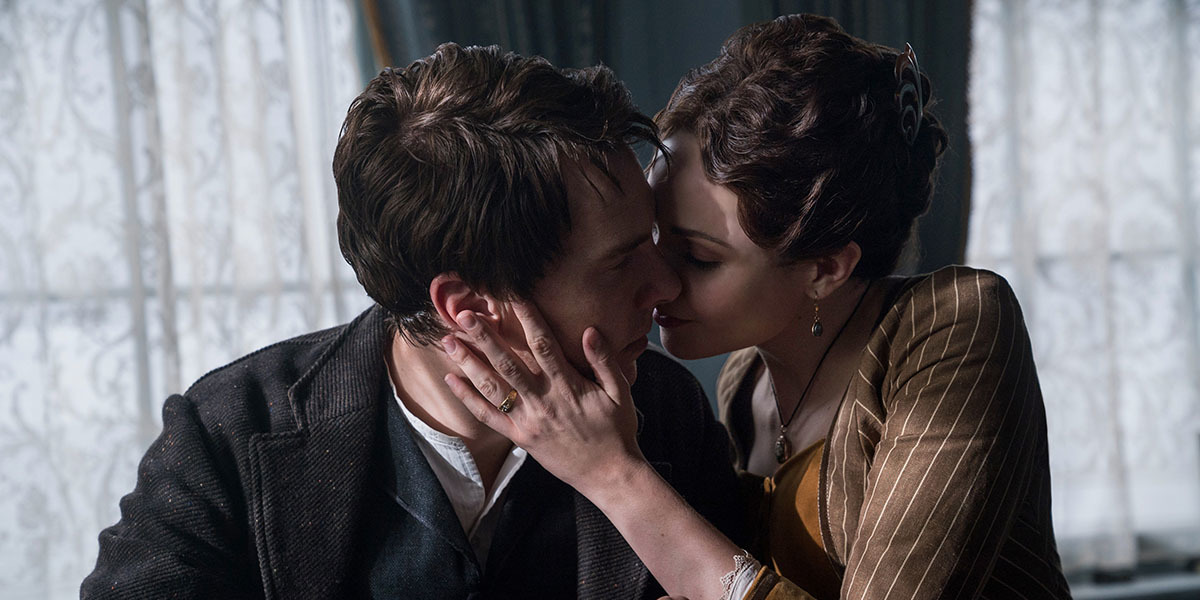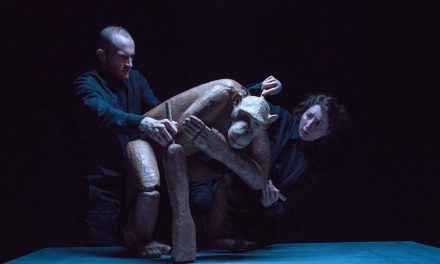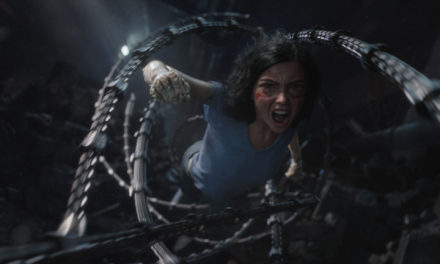European cinema has often thrived within an acclaimed tradition of social realist films that portray the struggles of everyday life and criticise the political conditions that spawned them. French filmmaker Xavier Legrand’s “Custody” is that sort of motion picture, but one injected with the ambiguous sensibilities of a cold-blooded thriller. Winning the 2017 Venice Film Festival’s Silver Lion for best director — along with the festival’s prize for best first film — “Custody” is chilling proof that a new talent has emerged onto the scene, taking on age-old cinematic structures with a fresh twist.
Julien Besson (Thomas Gioria), a young boy, has his statement read aloud in a closed custody hearing. In his words, he never wishes to see his father again, and neither does his adult sister Josephine (Mathilde Auneveux). His divorcing parents Miriam (Lea Drucker) and Antoine (Denis Menochet) sit in the hearing, battling over the custody of their children. Antoine, Miriam claims, was an abusive father and husband who has been stalking and terrorizing his family. Conversely, Antoine accuses Miriam of taking his children away from him. Weeks later, the court rules in favor of Antoine, allowing him to visit Julien on alternating weekends. A tempestuous hurricane of deception between the adults ensues, with Julien trapped in the eye of the storm, torn between protecting his mother and being forced to cede to his father’s demands.
The opening scene described above, set entirely in the closed session, announces Legrand’s intentions from the get-go. It’s a stunningly self-contained sequence that would make a marvelous short film of its own. It immediately gets to the matter at hand — a critique of bureaucracy and its inability to understand people and of the negation of a child’s point-of-view. In the scene, Julien is not present, and his parents are not visually revealed until after his statement is read. Here, the justice system is picking apart Julien’s words to create a legal argument, completely losing his point as a result. Cue escalating tensions between parents, lawyers and judges. Legrand sustains these tensions as the film goes on. His camera gets up close and personal with the drama, using cold resolve to intrude on private matters the audience shouldn’t see. The push-and-pull between analysis and emotion is the film’s greatest conceit, giving credit to its characters’ innermost feelings while illustrating the futility of trying to psychoanalyze them. People are contradictory in their behaviors, and to try to make sense of them, as bureaucracy does, robs individuals of their agency.
This conceit is a testament to Legrand’s impressive control of the form, as well as his refreshing dedication to brevity. At 93 minutes, “Custody” cuts out fluff and leaves major plot points offscreen. What we’re left with is a chimeric skeleton that fuses the sensitive bones of social realism to the brute strength of suspense. But it wouldn’t work without his phenomenal cast. Gioria is a truly amazing discovery, and he conveys Julien’s terror in the most visceral of ways. Auveneux is equally great as Josephine, albeit in a more interior vein than Gioria’s performance. Drucker does convincing work as Miriam, but Menochet is the best casting decision of the bunch. He’s physically imposing, towering over the other characters in height and build. But he’s also weak at his core, exemplifying the ways that Antoine is most menacing — as an impossibly strong physical presence capable of wreaking havoc due solely to his controlling insecurities.
But all of this leads to “Custody”’s one significant flaw, which is that it can’t seem to make up its mind on who it’s about. Overall, the structure of the film recognizes the family unit, with the first act focusing on the family as a whole, the second on Antoine and the third on Miriam and Julien. It speaks to the deep fractures and divisions in the familial dynamic, but often feels like a crutch. Legrand leans on this multi-character portraiture to avoid developing any of them as individuals. The scenes between the mother and two children are the most compelling, emphasizing their need to be secretive. They’re either keeping secrets from each other to avoid sounding alarms, or for reasons of safety around Antoine. In particular, a climactic confrontation at Josephine’s birthday party is a testament to this, in which Miriam, Julien and Josephine communicate through gazes, letting us into their inner conflicts through the actors’ faces. Thus, the focus on Antoine in the second half is baffling, considering that he’s clearly the film’s villain. In contrast to his ex-wife and children, he always has the final word. It makes us dislike Antoine even more, but points to a greater inconsistency in the film — that, just like the system Legrand criticizes, he can sometimes place a superficial importance on the adults.
In the last sequence of the film, all of these threads converge into a remarkably intense final act. It’s the film’s only overt plunge into violence. It’s a shocking way to end the film, and the final shot sums it all up beautifully. A door is shut on the audience, finally closing us out of our voyeuristic imposition into the characters’ lives. Legrand makes a powerful statement about filmmaking, in particular the two genres he plays with in “Custody.” Are we languishing in these social struggles and devastating violence as a form of entertainment, of release? Or will we actually be driven to intervene? And we often fail to do so. Here, Legrand lays bare one of the central conflicts of cinematic ethics, all distilled into a single act of shutting the audience out of the image, pulling the curtains over our eyes.







